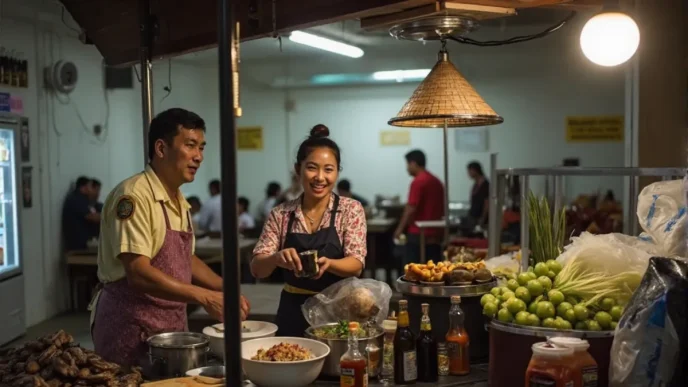In a startling medical case from northern Thailand, a three-year-old girl endured days of persistent nosebleeds before doctors at Nakornping Hospital in Chiang Mai discovered and removed a full-sized leech from her nostril. The incident, which unfolded earlier this month, has prompted health officials to urge parents to exercise caution when allowing young children to play near natural water sources, where such parasites are often found.
A Harrowing Discovery After Days of Uncertainty
The young girl, from Om Koi district in Chiang Mai province, first began experiencing nosebleeds after washing her face in a nearby creek. Initially, her condition baffled doctors at Om Koi District Hospital, who were unable to pinpoint the cause of the bleeding despite repeated examinations. Late on April 5, she was transferred to Nakornping Hospital in Mae Rim district for further investigation.
Upon arrival, a doctor on the night shift conducted an endoscopic examination of the child’s right nostril. The procedure revealed the unexpected culprit: a leech that had lodged itself inside. Using specialized equipment, the medical team safely extracted the parasite. The girl was subsequently treated with antibiotics to prevent infection and has since been discharged with no lingering symptoms, according to a statement from the hospital shared on social media.
A Warning to Parents About Hidden Dangers
Nakornping Hospital used the case as an opportunity to raise awareness about the risks associated with natural water sources, particularly in rural areas where leeches are common. In their public statement, hospital officials noted that the child’s exposure likely occurred during a seemingly harmless activity—washing her face in a creek. They advised parents to seek immediate medical attention if their children experience unexplained or recurring nosebleeds, especially after playing in streams, ponds, or other untreated water bodies.
The hospital also cautioned against attempting to remove leeches at home. Improper handling, they warned, could cause the parasite to break apart, leaving fragments inside the body that may lead to infection or other complications. “It’s critical to consult a doctor in such cases” the hospital emphasized in its post on April 9.
The Broader Risks of Leeches in Thailand’s Rural Landscapes
Leeches are a familiar hazard in Thailand’s lush, tropical environments, particularly in the northern regions like Chiang Mai, where dense forests and waterways provide ideal breeding grounds. While most encounters result in minor skin bites, cases like this—where a leech enters a body cavity—can be far more distressing and medically complex. Health experts note that young children are especially vulnerable, as they may not recognize or report the presence of a parasite until symptoms become severe.
Public health campaigns in Thailand have periodically highlighted the need for vigilance in rural communities, where access to immediate medical care can be limited. The journey from Om Koi to Nakornping Hospital, for instance, underscores the challenges faced by families in remote districts who must travel significant distances for specialized treatment. This incident serves as a reminder of the importance of education and preventive measures, such as wearing protective gear or avoiding certain water sources during rainy seasons when leeches are most active.
A Small Victory and a Call for Awareness
For the family of the young girl, the successful removal of the leech marked a moment of relief after days of worry. Her full recovery offers a hopeful note, but the broader implications of the case linger. As Thailand’s rural communities continue to live in close proximity to nature, stories like this highlight the delicate balance between embracing the environment and safeguarding against its hidden risks. For now, parents in Chiang Mai and beyond are left with a renewed sense of caution, ensuring that a simple splash in a creek doesn’t turn into a medical emergency.














